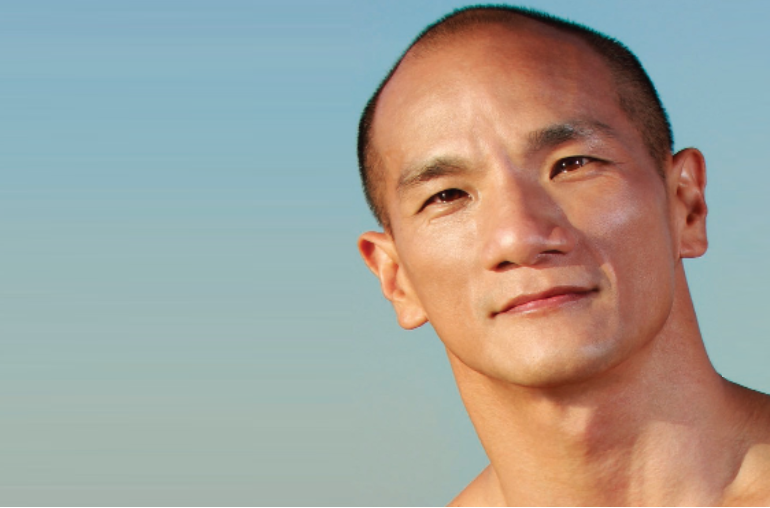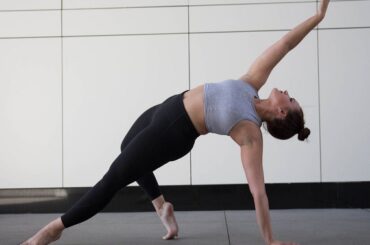Photo: Paul B Goode
Richard Chen See
Freelance dance teacher & regisseur on his personal journey, what dance means to him, its evolution, the effect of the pandemic and the future of dance, as he sees it.
What is your dancing style(s)?
I trained in ballet, afro-Caribbean, and modern dance based in Horton and Graham techniques. However, my performing career was primarily with ballet and American modern dance companies in the UK and the USA. I consider my expertise to be in contemporary dance blending ballet and modern techniques and aesthetics.
What made you choose this style?
In many ways, this style chose me. As a kid, I went to study the styles available to me in Jamaica, where I grew up.
When and how did you start dancing?
When I was about eight years old, I was invited to take ballet classes by a teacher who was looking for boys to join her school. She had seen me in a school demonstration of our Physical Education department. From there, I wanted to explore all the different forms of movement I saw or read about in books and magazines.
What does dance mean to you?
Deep down, I think dance has been a philosophical mentor in life for me. I continue to be obsessed with the capacity for movement to teach me about my own body, and in how watching someone dancing can transcend spoken languages. Dance was my path to explore the world. Dance gave me the chance to break racial and sexual stereotypes for audiences beyond my family and friends. Dance challenges me to be physically active as I age, and to be mentally agile in keeping knowledge of the past integral in our daily life and informing the future we hope to see.
How have you seen the dance industry evolve over the years?
I think dance is an integral part of human cultures, and it has evolved alongside social and technological advances throughout the world. When I was growing up, the only way to learn about dance outside of my local environment was listening to the radio and learning to read books and articles which could be expensive. I grew up enjoying the process of accumulating knowledge and revelling in the meticulous steps of training over months and years to gain physical skills.
Air travel, international film, television, evolving political borders and mostly open access to the internet have all contributed to changing the dance industry exponentially in my lifetime. With more access to world travel, information and visuals, it is easy to see how the dance industry has become impatient with the rigor of training, rehearsal and expertise in stage craft (including film-making). Yet there is little denying how transformational a polished, professional interactive performance can be, and the accumulated experience of all involved with such productions often would span multiple lifetimes.
For me, dance has become less focused on “superstars”, though we certainly have many performers to idolize, and it is certainly more acknowledged as an Art in and of itself. These are good things, but they are different than my early career experience in the industry.
How different is dance around the world?
I would say that dance is as varied as the cultures out of which they are born. I have found that the differences are more in what an individual or an audience gets from seeing dance from a different culture or geographic area, even within the same discipline, such as ballet from London or Paris, or Hip Hop from New York City or Mumbai.
The beauty and the complexity of dance is that its success is often based on how different audiences interpret what they see, and the range of reactions might surprise you.
What styles do you feel will dominate the dance scene in the next ten years?
I believe an affinity for a “style” of dance is a very personal choice. I think that more knowledge of differing styles will be more commonplace. Similarly, I think that fusions of culturally evolved disciplines will become more prevalent.
How has the pandemic changed the dance scene?
From my perspective, the pandemic has driven a greater demand for video and online dance presentations. However, as a professional, I am often disappointed in the level of understanding or respect for how video is a very different medium than live performances for which dance is created.
I fear that the general online audiences have little interest in how much discipline and training is behind the exceptional abilities of talented dancers providing the most successful streaming/on demand content. And similarly, the inundation of dance content will hopefully push the industry to respect the discipline and knowledge of film makers and crews whose specialty is the Art of presenting live-Arts on screens.
Do you feel online learning is the same as offline?
I definitely do not feel that online learning is the same as in-person. Almost everyone’s learning is assisted by unspoken examples of other students tackling the same challenges in the same physical space. Even if you had the space and movie-theatre-size screens, learning a new physical discipline is hampered with the online experience.
For dance, video recordings are often a reminder of a lived experience, or they visually connect to a sensation familiar in your own body. However, I have personally seen the vastly improved experience and learning of my students that started with online classes and then we finally met in person for an in-studio class. Beyond just having room to move and not needing to be close enough to a screen to pick up or hear the music, most people still hone their communication skills with live interaction. And I consider communication through movement to be foundational in dance, especially when learning.
Do you prefer to perform or teach and why?
I retired from performing because my body was no longer keeping up with the movement I imagined and strived for through thirty years on stages. However, I began teaching in my early twenties, and I love helping others find their individual potential within the disciplines of my expertise.
If you weren’t a dancer, you would have been?
An Emergency Medical Technician (EMT)
Tell us your story in under 25 words:
I am a Jamaican who travelled the world through dance and settled in the USA as a professional dancer, always exploring.


